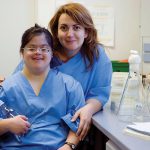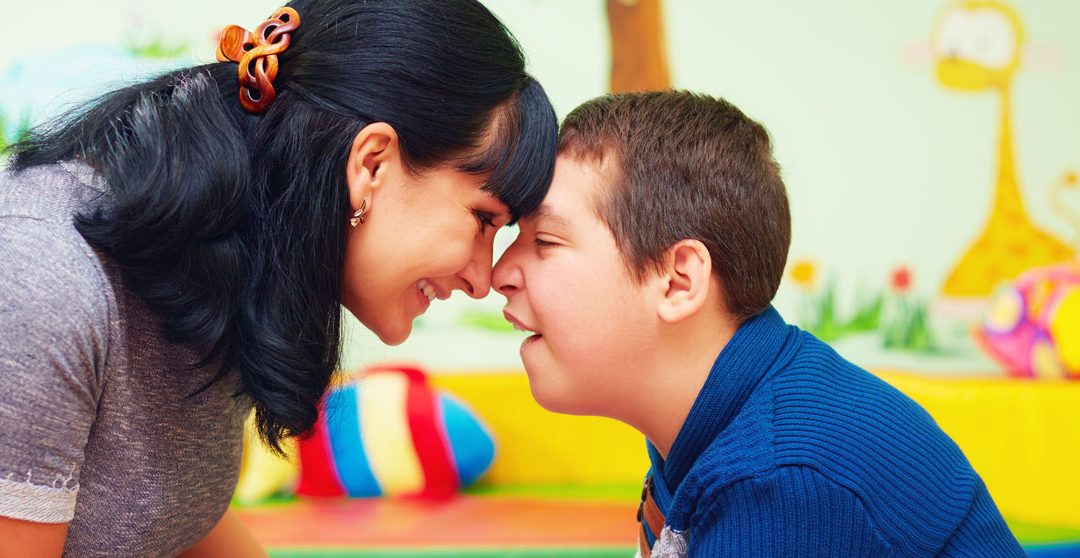Allied Health
HOPE DISABILITY
Allied Health Support
It is the Allied Health Workforce in Hope Disability Support is a broad range of professionals that are typically professionals with a university degree who work as part of a team of healthcare professionals to assist a patient’s medical treatment. In the “Review of the Australian Government Health Workforce Programs, 8.2 Allied Health Workforce:
In broad terms, they provide services that enhance and sustain their patients’ functions (clients) across a variety of settings, including private practice, hospitals, or community health clinics, as well as home care. They place a high priority on healthy living and on autonomy, whether that is physically, mentally, socially, or cognitively. Health professionals from the allied health profession also play an important role to play in the care of those who have disabilities from childhood until adulthood.
Get a Free Quote!
Allied Health Services
Allied of Fitness and Wellbeing
These professionals help people with disabilities, injured or sick people to manage their health and wellbeing. They may help manage chronic conditions, such as asthma or diabetes, as well as injuries and illness, such as injuries sustained from accidents or illnesses such as cancer, HIV, or arthritis. They can provide psychosocial support, which is the mental health component of health and wellbeing. They can help people manage stress, cope with loneliness, and find meaning in their lives. They can also help people manage relationships, such as building and maintaining friendships.
Allied Clinical Services
These professionals work with physicians to provide a range of clinical services that include assessing and managing medical conditions, such as diabetes or high blood pressure or asthma, and surgeries, such as lung or colorectal cancer. They may also conduct genetic testing and order or interpret medical tests. They may also prepare medication, and give injections or give vaccines. Some clinical services may be provided at a hospital or outpatient clinic, or in a person's home.
Professional Healthcare support worker
A healthcare support worker provides support to other healthcare professionals, such as nurses or physiotherapists, for example. They may assist people with a physical or mental health condition or with a disability or chronic illness. Healthcare support workers have the same basic level of training as nurses or physiotherapists and are certified by the Australian Association of Community Health Organisations (AACHO).
NDIS allied health services
An NDIS-approved healthcare provider may offer a number of services in the allied health field. Most notably, these services include occupational therapy, which is a specialized branch of therapy that focuses on assisting and improving the patient's functional abilities. Additional allied health services that may be offered by an NDIM registered service include the following: - Immunology - Immunology services encompass the testing and monitoring of the patient's immune system, including any associated medications. - Nutrition - Nutrition services are designed to help patients who are underweight or who are malnourished. Patients who are underweight may experience a number of physical and emotional symptoms as a result. - Speech Therapy - Speech therapy is designed to assist patients in improving their communication skills. - Pain Management - Pain management services are designed to help patients to better manage their pain through the use of medications. - Wound Management - Wound management services are designed to help patients to better manage the development of wounds that may occur as a result of accidents, surgeries, or other injuries. - Infection Control - Infection control services are designed to help patients to better manage the development of infections.
Allied Health support in Rehabilitation
These professionals work with physicians to provide physical rehabilitation services to help people manage or recover from injuries or illnesses, such as back pain or cancer. Rehabilitation services may include exercises to strengthen muscles and improve posture. Some services may be provided in a person's home while others may be provided in a facility with gym equipment or a pool. Some rehabilitation services are provided by occupational therapists who help people return to work or learn new skills. These professionals can also help people with learning disabilities, such as dyslexia, to manage their learning difficulties. These may include finding ways to assist people with learning difficulties, such as organizing learning materials or building study skill.
Corporate Allied Health Services
These professionals provide health and wellbeing services to employees in or for businesses. This can include assisting with workplace health and wellbeing services such as smoking cessation programs or managing diabetes in employees. Corporate services may also include providing mental health support for employees, such as managing mental health issues, such as depression. These services could be provided through in-house employee health programs, or through a health insurance policy.
Specialties in the Allied health profession
Allied health professionals work in settings that include hospitals, nursing homes, community health clinics, home health services, and medical practices. - A registered nurse (RN) has a professional nursing degree and is a licensed healthcare provider with the authority to prescribe medication. - A physiotherapist is a health professional who is trained to help people to manage pain, improve movement, and engage in self-care activities. - A clinical social worker (CSW) has a master's degree or a doctorate in social work and is a licensed healthcare provider who advises people on social issues and health care issues. - A speech-language pathologist (SLP) is a health professional who is trained in the diagnosis and management of communication and swallowing disorders.
NDIS registered for Allied Heath support
Once a person with a disability becomes eligible for the NDIS, they might choose to have some support from the NDIS for their allied health needs. This type of support is called registered for allied health (RFAH). Registered for allied health services are those that have been approved by the Australian Government National Disability Insurance Agency (NDIA), and are listed in the NDIS Approved List. The services that are listed in the Approved List are required to meet certain standards, and in some cases, be approved by the relevant certifying authority. To be included in the NDIS Approved List, registered for allied health services must be offered by a service provider that is either a public or private hospital, or a community health service. Registered for allied health services may vary in their scope and type depending on the type of provider offering them. Registered for allied health services may include services such as - Occupational therapy - Occupational therapy services are intended to help people manage their physical and cognitive abilities through the use of the equipment and assistive devices, including computers and other technologies. - Nursing care - Nursing care services are intended to help people manage their health through the use of nursing care provided by nurses, including medication management. - Psychological services - Psychological services are intended to help people manage their mental health through the use of psychological counseling provided by psychologists.
our Support
Hope Disability Support provides support to all young people and adults with everything related to support, care, accommodation, and independent living issues. Call Hope Disability Support for all your support with the NDIS.
Clients say
Hope Disability Support's team Hope Disability Support understands us and our circumstances. They go above and beyond. We are so satisfied with their services that we will never leave.

The fact that they are available 24 hours a day is astonishing! I wouldn't have any idea what to do without Hope Disability Support. They've been there for us in times when our families needed it most.

Hope Disability Support and its experienced staff have changed my child's life for the better. I would highly recommend Hope Disability Support's services.

Previous
Next
News & Updates
We support to all youths, Young people and adults regarding anything, care , support, accommodation and independent living issues.
Allied Health FAQ
What is the Allied Health Workforce?
The allied health workforce is a broad range of professionals that are typically professionals with a university degree who work as part of a team of healthcare professionals to assist a patient's medical treatment. This includes occupational therapists, physiotherapists, speech therapists, psychologists, dietitians, medical assistants, and many other health occupations. They place a high priority on healthy living and on autonomy, whether that is physically, mentally, socially, or cognitively. There are two main groups of people who work in the allied health field: healthcare providers and assistive technology (AT) specialists. Healthcare providers include occupational therapists, physiotherapists, and psychologists. Assistive technology specialists include dietitians, medical assistants, and aides.
How Much Does It Pay in Allied Health?
The salaries for allied health care providers vary greatly depending on the type of job, the city, and hospital. Although the median salaries of allied health practitioners are on the lower end of the scale relative to other healthcare professionals, the salaries in many allied health fields are expected to grow faster than the overall average. The median annual salary for allied health workers was $43,000 in June 2011. However, salaries vary considerably with experience, geographic location, and type of job. For example, an occupational therapist in Alaska earns over $100,000 while an aide in rural Iowa earns less than $20,000 per year. The salaries of allied health care providers also vary depending on the city. In some cities, such as San Francisco, allied health workers earn more than those in Manhattan, New York.
What are the definitions of the terms in allied health care?
Allied health care (AHC) is a medical specialty that focuses on health promotion and disease prevention to enhance functioning. It can also focus on improving the quality of life of the people affected by disease terminal or chronic conditions. - Healthcare support worker (HSW) is a person with specific training who works in the community with disabled people as a personal assistant. They work to provide assistance with day-to-day activities such as cooking meals, cleaning, and dressing. HSWs are also available to help manage the person's finances, assist in grooming, help with personal care, and other tasks. - Dietitian is a health professional who has studied nutrition and the role it plays in managing health and illness. As a dietitian, they can help their clients make healthier food choices while they manage their weight. They can also work with people who have or who are at risk of developing diabetes or are taking medications that require a dietitian.
Why is allied health support necessary?
The allied health support workforce is essential to providing care in settings where health care is typically provided. For example, it is important to have occupational therapists working in hospitals and nursing homes, medical assistants on an acute care medical team, and physical therapists who work with people who have sustained injury.
How can I get the Allied Health Service?
Each industry has its own requirements and regulations when it comes to getting the allied health service. The best way to find out if an allied health profession is right for you is to speak with an occupational therapist, physiotherapist, dietitian, or another allied health professional in your area. If you would like an opinion about what is best for you, a disability support worker can also help you understand your options and make an informed decision about what is best for your life. If you are interested in becoming an AT specialist, you must earn a four-year university degree in a relevant subject, pass the relevant professional exams, and complete a specified number of hours of supervised AT work. This path is similar to that of a medical doctor who completes medical school, clinical training, and then further years of post-graduate medical education. If you are interested in becoming an occupational therapist, you must earn a four-year university degree in a relevant subject, pass the relevant professional exams, and complete a specified number of hours of supervised OT work under the supervision of an accredited occupational therapist.
Do you provide professional allied health support?
Hope Disability Support is a non-profit organization that has been providing services to individuals with disabilities since 1938. We do not hire professional allied health support workers directly. We contract out with qualified health care professionals that are interested in providing services to individuals with disabilities.







